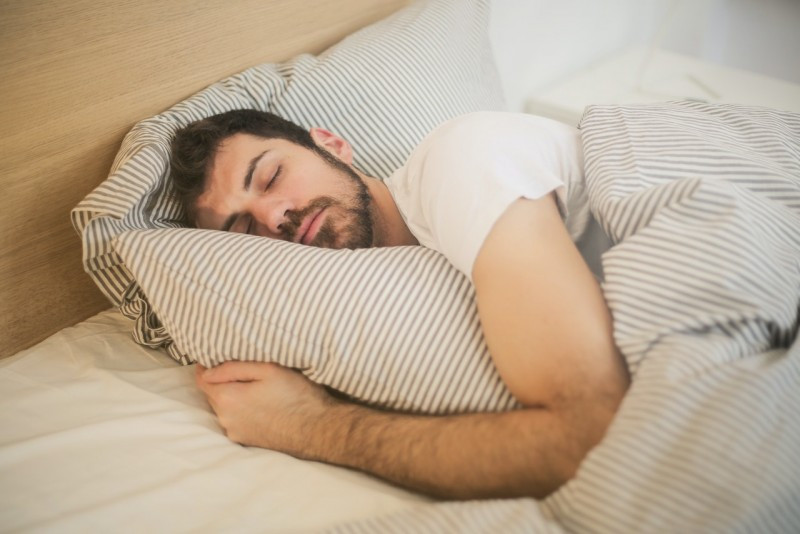For many individuals, falling and staying asleep isn't easy. In the busy, fast-paced culture we live in, sleeplessness is all too common. Here is some background on it, and how it can be addressed both with healthy, natural, non-medicated remedies.
What Causes Sleeplessness?
A variety of
risk factors such as old age and genetics can increase the likelihood that an individual experiences sleeplessness. Life circumstances such as an occupation with a night or irregular schedule can throw off one's circadian rhythm and make sleeping difficult, too.
Stress or anxiety over things big and small can precipitate sleep issues. Of course, lifestyle factors also are an enormous factor for many insomniacs: drug and alcohol use, lack of physical activity, screen time before bedtime, and diet all affect your ability to sleep soundly.
The occurrence of sleeplessness is not trivial. In fact, it is widespread. About
70 million Americans experience some type of sleep disorder, and insomnia is by far the most common. About 30% of all US adults experience short-term insomnia, and 10% experience chronic insomnia (defined as at least 3 nights per week of trouble sleeping, for at least 3 months).
Remedies for Sleeplessness: Do They Help?
If you already make lifestyle choices that promote good sleep, or have dealt with persistent sleeplessness and don't want medication, then you might be wondering, Are there any easy sleep-aids out there that might help?
The answer is yes. Fortunately, there are a few products that can be helpful, and we've listed them here. These are all non-addictive, natural, and potentially effective remedies for sleeplessness.
Melatonin is so commonly recommended as a sleep aid that you probably already know of it. If you believe you could benefit by it but have not tried it, then talk to your doctor about it. We know melatonin is safe because it's a hormone that is already
produced in your brain. If you have tried it without any success, then remember to take it around two hours before bedtime while also practicing good sleep hygiene (avoiding screen time during those two hours, and not eating late).
Valerian is an
herbal supplement that has been touted for its effect in promoting good sleep. It has been speculated that valerian helps promote the production of GABA (gamma-aminobutyric acid), a neurotransmitter that contributes to sleep.
Pregnenolone is another hormone that is already present in the human body.
Pregnenolone (along with similar hormones like estrogen) can have a positive influence on sleep. Studies have shown that pregnenolone might play a role in the occurrence of deep, or, more technically, slow-wave, sleep.
5-HTP, or 5-hydroxytryptophan, also naturally occurs in the human body. It helps production of
serotonin, a neurotransmitter which helps govern the sleep-wake cycle. Serotonin actually works in tandem with melatonin to produce sleep. 5-HTP directly helps contribute to this process.
Passionflower is an herb which has been used to
remedy sleeplessness. While scientific study hasn't conclusively supported this, passionflower is one of the primary herbs used for sleep. It can be used to brew herbal tea, or taken as a supplement.
Treating sleeplessness, especially if it's persistent, can sometimes necessitate external help. In addition to good lifestyle habits and sleep hygiene, the above remedies can make for productive and worthwhile sleep-aids. If you want non-medicated, accessible remedies, ask your doctor about trying one or more of the remedies seen here.

